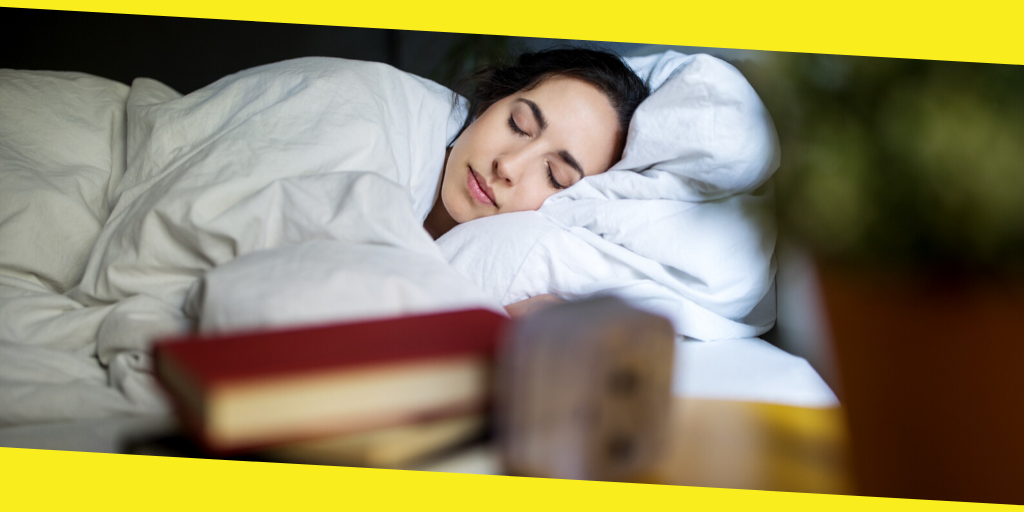
When a mom has a baby, her sleep is interrupted by nighttime feedings and diaper changes. However, many moms still find that they’re sleep-deprived even after their little one is able to sleep through the night. When you’re chronically tired, you’re at risk of obesity, diabetes, decreased alertness and poor immune system functioning. If your child is a toddler or preschooler, and you’re still having a tough time falling asleep or staying asleep, here are six ways that you can get a better night’s rest.
1. Turn Off the Lights
The lights on electronic devices cause your brain to stop producing melatonin. This is the hormone that makes you feel sleepy. Turn off your smartphone, tablet or laptop at least 30 minutes before bedtime. Eliminate electronic lights from your bedroom. If there’s a bright street lamp outside, get room-darkening blinds, shades or drapes. Avoid watching television within 30 minutes of your bedtime.
2. Stop Stressing Your Brain
Thinking too much before bedtime stimulates your brain and keeps you awake. That last-minute check of your work email might trigger you to stay awake. Getting into a big discussion close to bedtime causes a similar effect. Watching the news, reading a horror novel or worrying about things you cannot control all trigger stress hormones, such as cortisol. These hormones increase your brain activity and make it difficult to relax. Do something relaxing before bed, such as taking a bath or doing a word search.
3. Decrease Caffeine and Alcohol
When you’re tired, it’s tempting to turn to caffeine to get you through the day. Caffeine has a half-life of about four to six hours. If you’re still drinking coffee in the afternoon, it may interfere with your sleep. Decrease your caffeine intake, and avoid consuming caffeinated foods or drinks after 2:00 pm. This gives your body time to metabolize the caffeine. A late-evening glass of wine may also interfere with your sleep. Alcohol disrupts your sleep cycle and makes it more difficult to reach the deep stage of sleep. Alcohol also makes you sweat, snore and need to urinate, which could also disrupt your sleep partner’s rest.
4. Check Medication Side Effects
Your sinus medicine might be keeping you up at night. If you’re taking a decongestant for sinus or allergy symptoms, one of the common side effects is wakefulness. Many other medicines also cause insomnia. Asthma controllers and inhalers are also common triggers of sleeplessness. The old standby of taking diphenhydramine to induce sleepiness often backfires, as it may cause rebound insomnia a day or two after taking it.
5. Hormones
Hormone fluctuations could also disrupt your sleep. At the end of the menstrual cycle, progesterone dips may interrupt sleep. Post-partum and peri-menopausal women may also experience sleep disruptions. High or low thyroid hormones could affect sleep, too. Your doctor can order lab tests to measure hormone levels.
6. Skipping Exercise
A sedentary lifestyle also leads to a poor quality of sleep. Exercising outdoors exposes your body to sunlight and encourages a good night’s rest. Aim for at least 30 minutes of moderate to vigorous exercise every day. Exercising earlier in the day is better for sleep.
You may like this